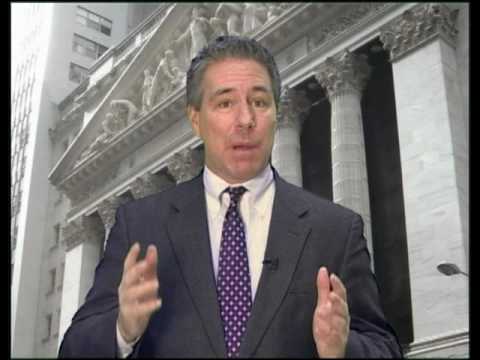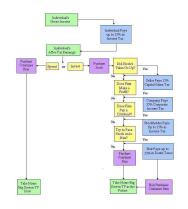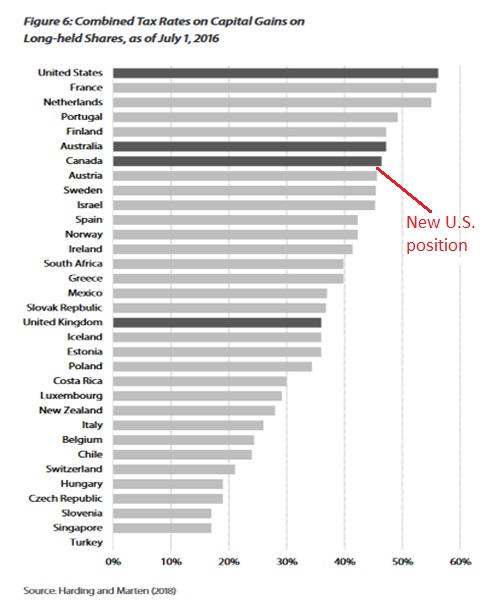President Kennedy’s tax rate reductions were a big success. Sadly, very few modern Democrats share JFK’s zeal for pro-growth tax policy.
- Bernie Sanders wants a huge increase in the death tax.
- Elizabeth Warren wants a punitive wealth tax.
- Alexandria Ocasio-Cortez and others want confiscatory tax rates.
And there’s another arrow in the class-warfare quiver.
The Wall Street Journal reports on a misguided new idea from Ron Wyden, the ranking Democrat on the Senate Finance Committee.
The top Democrat on the Senate’s tax-writing committee proposed taxing unrealized gains in investment assets every year at the same rates as other income…an idea that would transform how the U.S. taxes the wealthiest people. …Under Mr. Wyden’s concept, capital gains would be taxed annually based on how much assets have gained in value. Now, by contrast, gains are taxed only when assets are sold and at a top rate of 23.8% instead of 37% for ordinary income.
There are two big reasons why this is a terrible idea.
First, the right policy is to abolish any tax on capital gains. Drop the rate to zero.
Simply stated, there shouldn’t be an added layer of taxon people who earn money, pay tax on that money, and then buy assets with some of the remaining after-tax income.
Especially since the income generated by that additional investment already would be hit by the corporate income tax and the extra layer of tax on dividends.
This system is also very bad for workers because of the long-standing relationship between investment and employee compensation.
Second, levying such a tax would be a logistical nightmare. Here’s another brief excerpt from the article.
Mr. Wyden’s concept would present logistical challenges. He would need to figure out how to value complex assets, handle declines in value, deal with people without enough cash to pay the tax and address illiquid investments such as closely held businesses and real estate.
So why would Sen. Wyden propose such a clunky class-warfare scheme?
Because it would generate (at least on paper) a lot of money that could be used to buy votes.
This mark-to-market tax concept…could raise substantial money. A similar proposal…would generate an estimated $125 billion in 2025 alone… Democrats, who are campaigning on wide-ranging and costly ideas for more spending on health care, infrastructure and education, can point to plans by Mr. Wyden and others to explain how they would pay for policy proposals.
Of course, no amount of tax increases would generate the revenue to finance the so-called Green New Deal.
In reality, a major reason for Wyden’s plan is that the left is motivated by class warfarerather than revenue collection.
Democrats have frequently found unfairness in the different ways that the U.S. tax system approaches wage and investment income. They have focused their response, in part, on the “Buffett Rule”, inspired by Warren Buffett’s claim that he pays a lower tax rate than his secretary.
I added this final excerpt simply so I can point out that Buffett’s claim is utter nonsense.
And so is the “Buffett rule” that some folks on the left have proposed.
I’ll close by noting that the United States has one of the world’s least friendly tax codes for investment.
The lower corporate rate in the Trump tax planwas a step in the right direction.
But even with that positive reform, the overall tax burden on capital gains is very highcompared to America’s major trading partners.
And now Senator Wyden wants to make a bad situation worse.
For further information, here’s my videoexplaining why there shouldn’t be any tax on capital gains.
P.S. Uncle Sam also forces investors to pay capital gains tax when assets rise in value because of inflation.
Daniel J. Mitchell is a public policy economist in Washington. He’s been a Senior Fellow at the Cato Institute, a Senior Fellow at the Heritage Foundation, an economist for Senator Bob Packwood and the Senate Finance Committee, and a Director of Tax and Budget Policy at Citizens for a Sound Economy. His articles can be found in such publications as the Wall Street Journal, New York Times, Investor’s Business Daily, and Washington Times. Mitchell holds bachelor’s and master’s degrees in economics from the University of Georgia and a Ph.D. in economics from George Mason University. Original article can be viewed here.
Self-Reliance Central publishes a variety of perspectives. Nothing written here is to be construed as representing the views of SRC.




